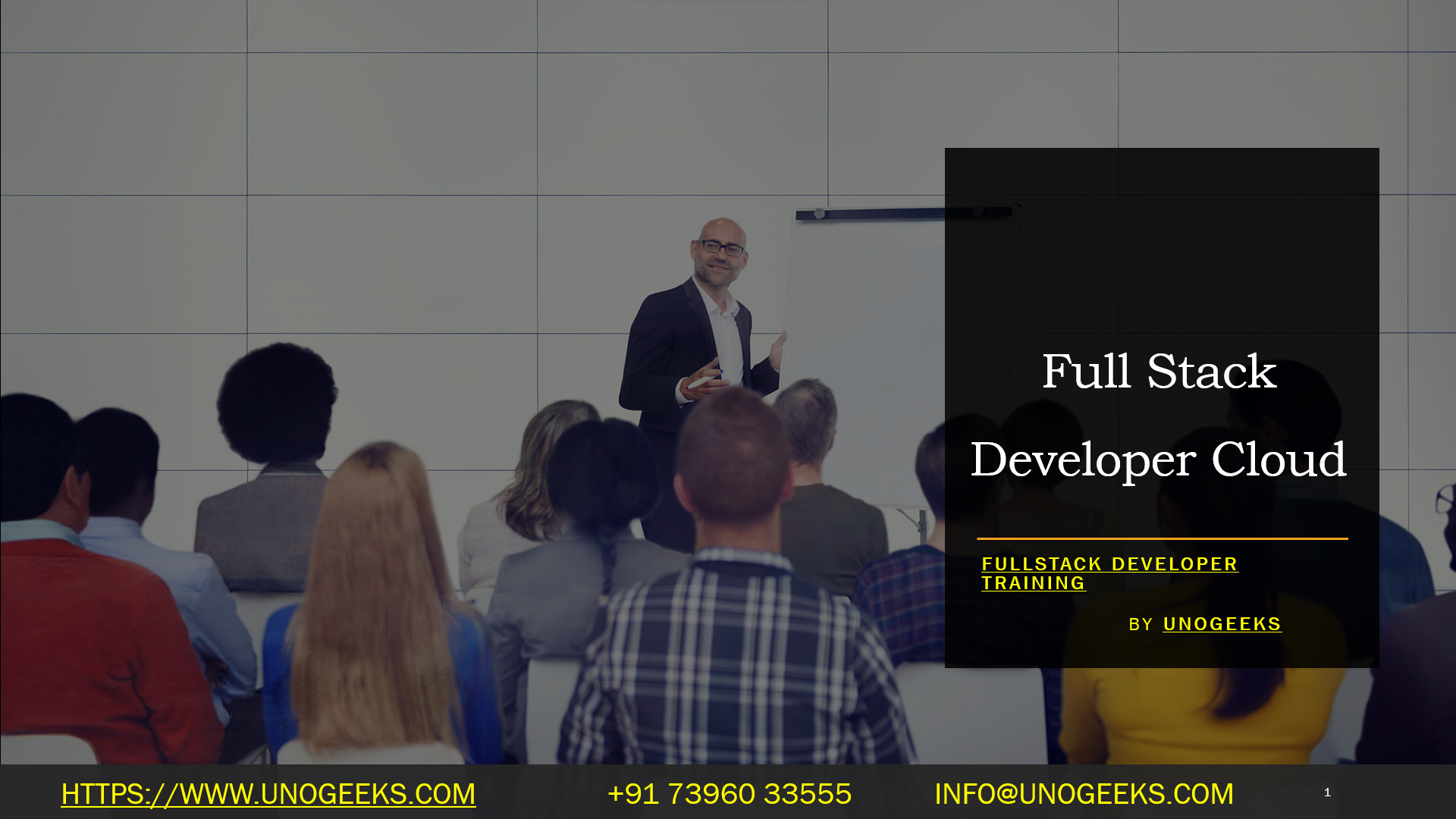Full Stack Developer Cloud
Full Stack Developer Cloud
A Full Stack Developer with expertise in cloud technologies is a professional who specializes in developing web applications and software solutions that leverage cloud computing platforms and services. These developers are proficient in both front-end and back-end development, and they have a deep understanding of cloud infrastructure and services. Here are the key aspects and skills associated with a Full Stack Developer with a focus on the cloud:
Front-End Development:
- HTML/CSS/JavaScript: Proficiency in front-end technologies for creating web user interfaces and adding interactivity to applications.
- Front-End Frameworks: Familiarity with front-end libraries and frameworks like React, Angular, or Vue.js for building responsive and dynamic web interfaces.
- User Experience (UX) Design: Understanding of UX design principles to create user-friendly and visually appealing applications.
Back-End Development:
- Server-Side Programming: Proficiency in a server-side programming language (e.g., Node.js, Python, Ruby, Java, C#) for implementing server logic and APIs.
- Web Frameworks: Knowledge of back-end frameworks like Express.js (for Node.js), Django (for Python), Ruby on Rails, Spring Boot (for Java), or ASP.NET (for C#).
- Database Management: Skills in working with databases, both SQL (e.g., MySQL, PostgreSQL) and NoSQL (e.g., MongoDB, AWS DynamoDB).
- API Development: Building RESTful APIs or GraphQL endpoints for communication between the front-end and back-end.
Cloud Computing:
- Cloud Platforms: Expertise in using cloud platforms like AWS (Amazon Web Services), Azure, Google Cloud Platform (GCP), or others.
- Infrastructure as Code (IaC): Experience with IaC tools like AWS CloudFormation, Azure Resource Manager (ARM), or Terraform for automating cloud infrastructure provisioning.
- Serverless Computing: Knowledge of serverless computing services like AWS Lambda, Azure Functions, or Google Cloud Functions for event-driven application architecture.
- Containerization: Understanding of containerization technologies like Docker and container orchestration platforms like Kubernetes.
- Cloud Services: Familiarity with a wide range of cloud services, including compute, storage, networking, databases, serverless functions, and more.
- DevOps Practices: Implementing DevOps practices for automation, CI/CD (Continuous Integration/Continuous Deployment), and infrastructure management.
Development Tools and Practices:
- Version Control: Using version control systems like Git for code management and collaboration.
- Continuous Integration/Continuous Deployment (CI/CD): Setting up CI/CD pipelines for automating testing, building, and deploying applications to the cloud.
- Monitoring and Logging: Implementing monitoring and logging solutions to track application performance and troubleshoot issues in the cloud environment.
- Security: Ensuring cloud security best practices are followed to protect applications and data in the cloud.
Full Stack Developer Training Demo Day 1 Video:
Conclusion:
Unogeeks is the No.1 IT Training Institute for Full Stack Developer Training. Anyone Disagree? Please drop in a comment
You can check out our other latest blogs on Full Stack Developer Training here – Full Stack Developer Blogs
Please check out our Best In Class Full Stack Developer Training Details here – Full Stack Developer Training

———————————-
For Training inquiries:
Call/Whatsapp: +91 73960 33555
Mail us at: info@unogeeks.com
Our Website ➜ https://unogeeks.com
Follow us:
Instagram: https://www.instagram.com/unogeeks
Facebook: https://www.facebook.com/UnogeeksSoftwareTrainingInstitute
Twitter: https://twitter.com/unogeeks
